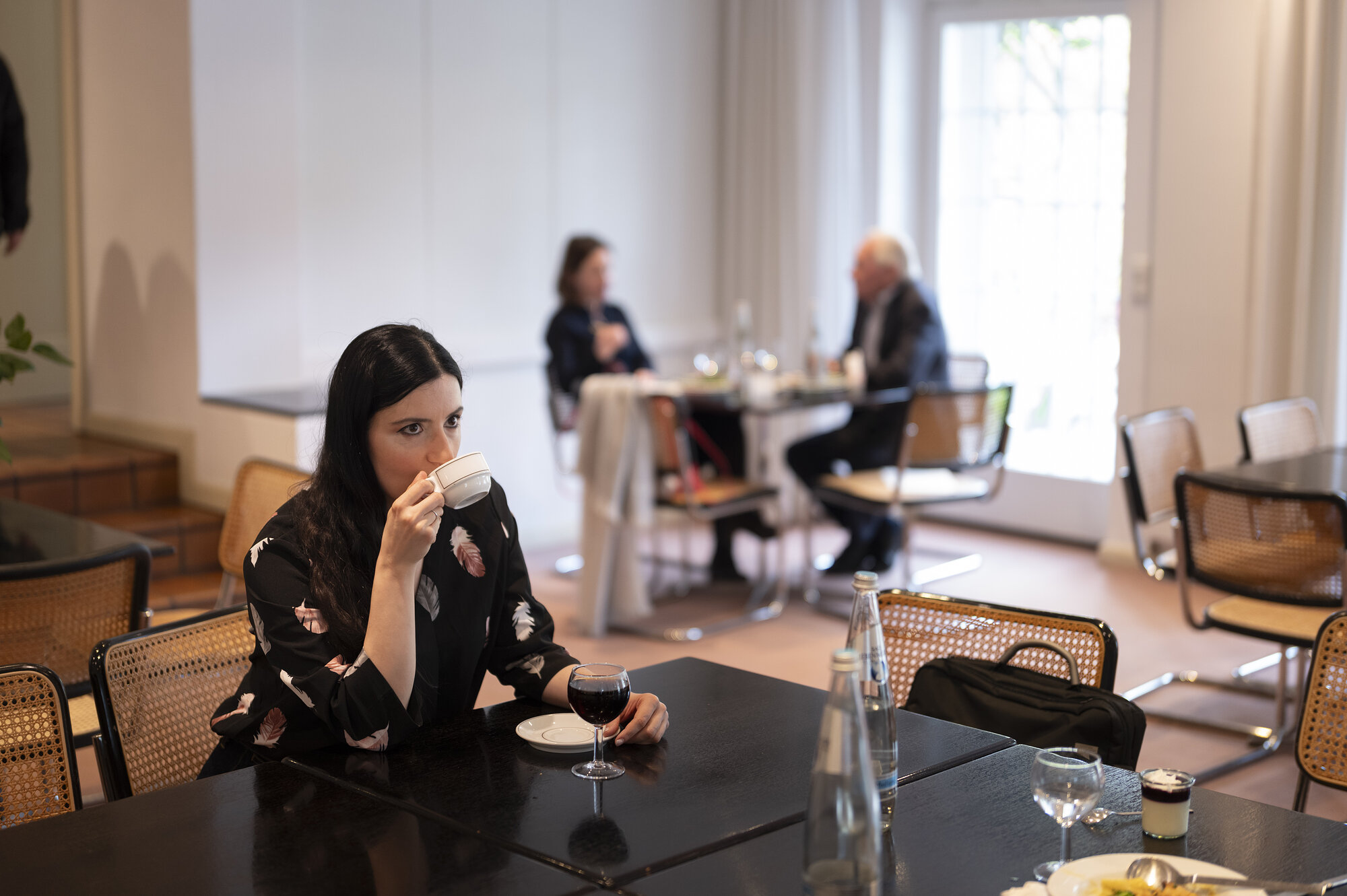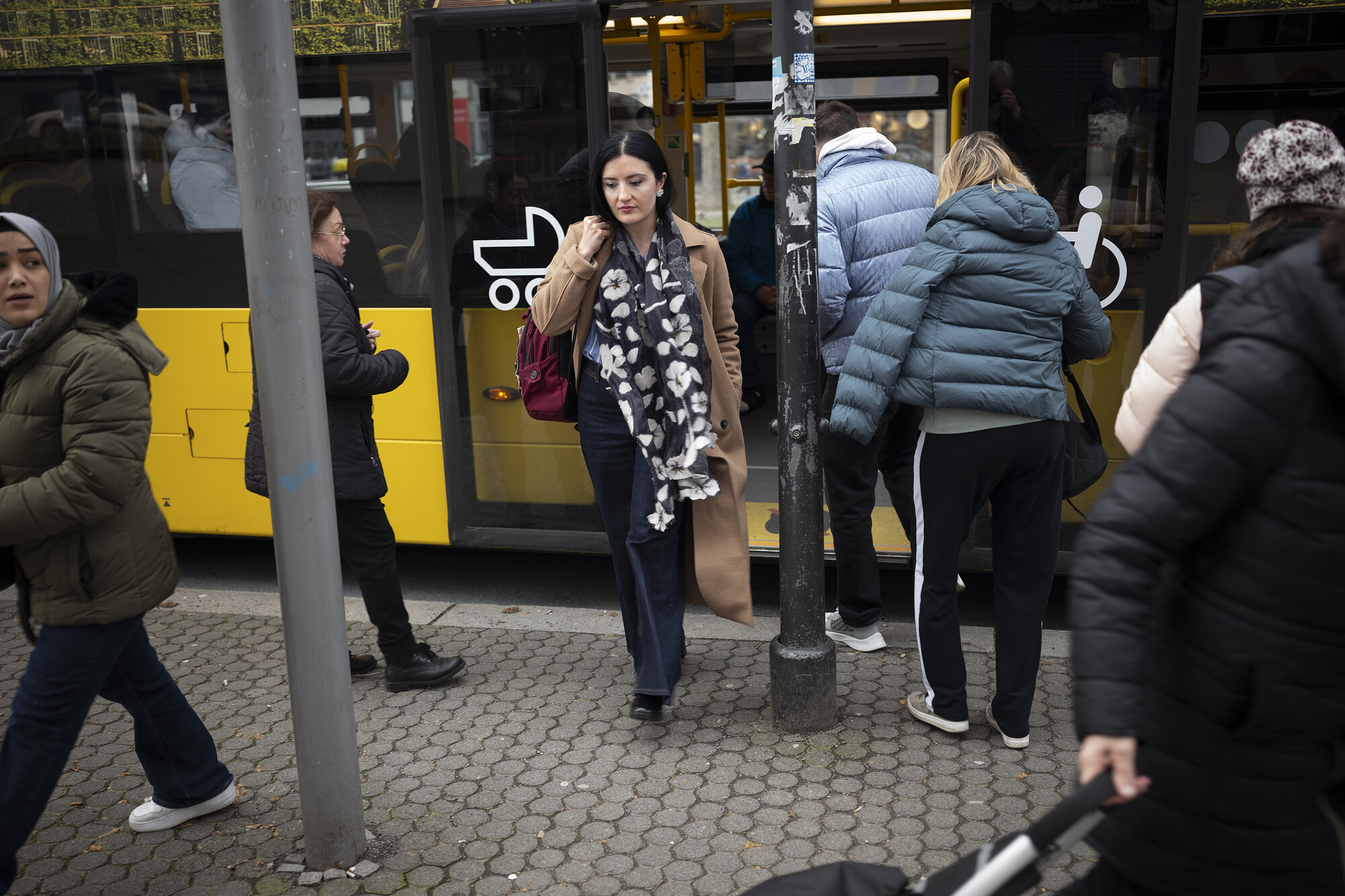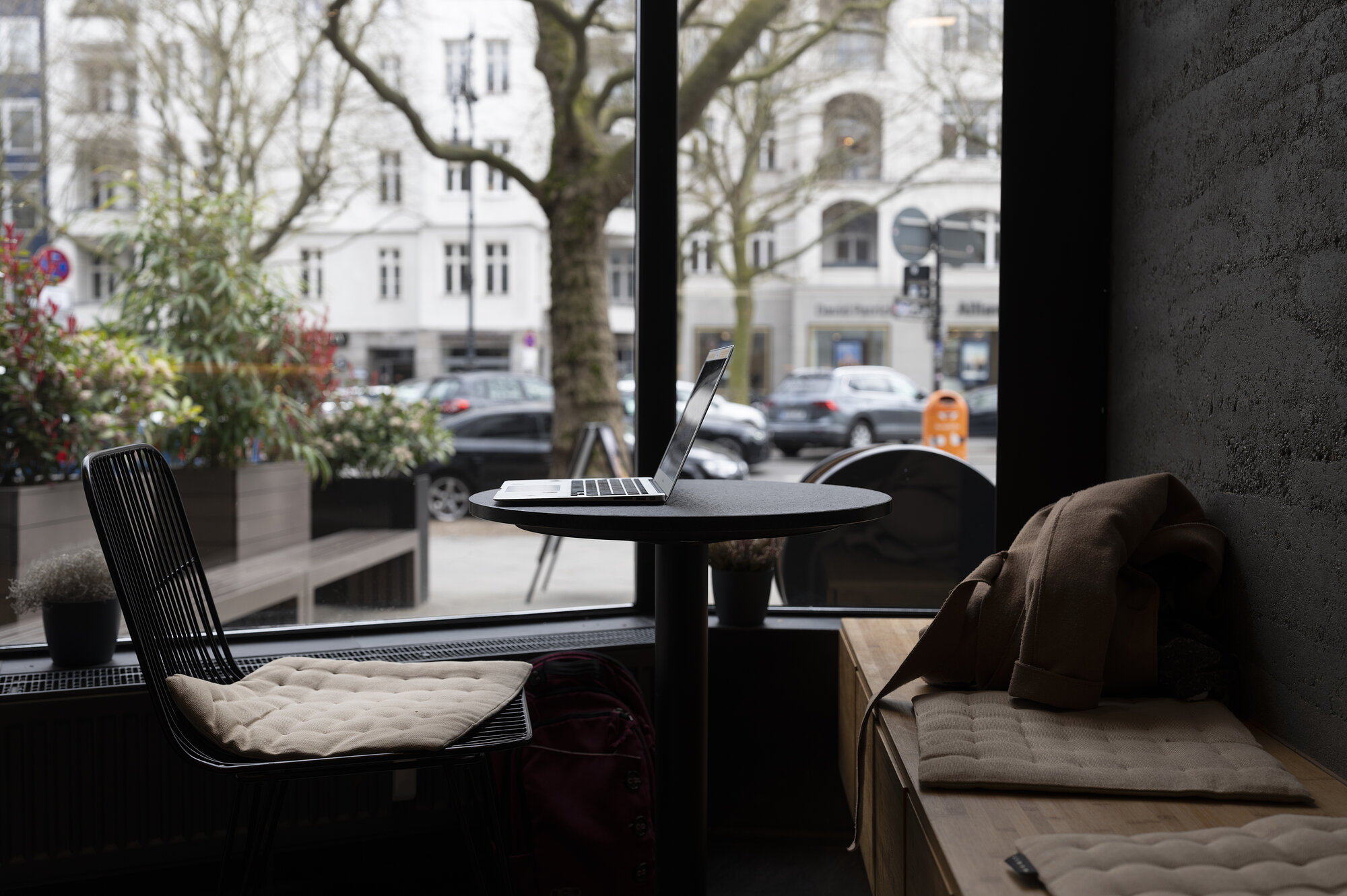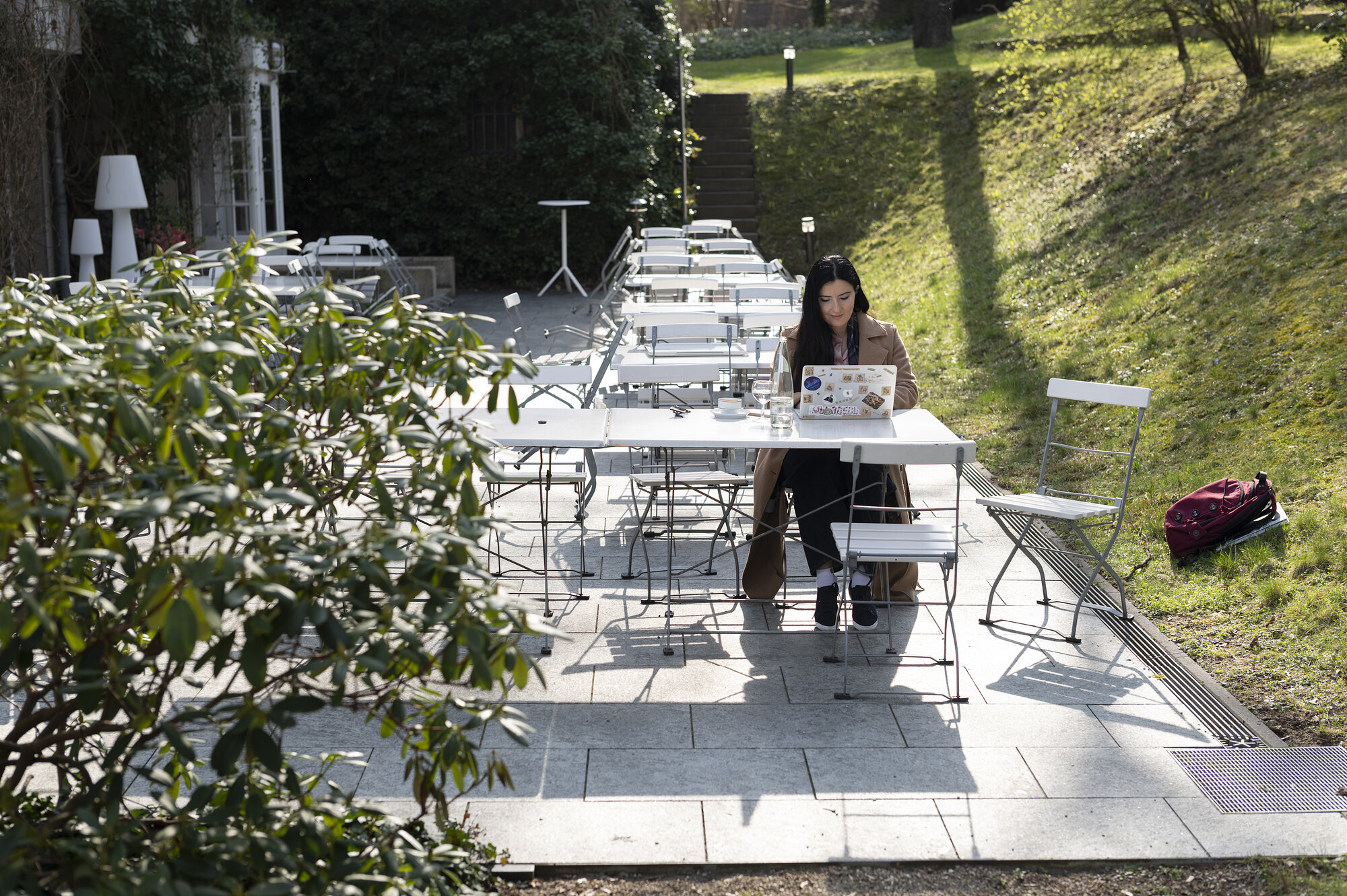Issue 19 / June 2024
The Empire Must Crumble
by Kerstin Holm
The exiled Russian writer Alisa Ganieva comes from the Republic of Dagestan and accuses Moscow of colonial exploitation. Dagestan is a poor region in the Caucasus and receives investments as its reward for recruiting soldiers for the Ukraine war
Ganieva is not only among the few of her oppositional compatriots who saw the major attack on Ukraine coming, she also censures many of Putin’s critics for their imperial-colonial arrogance. The 38-year-old Ganieva has lived in Moscow ever since her college days when she studied literature, and in 2009 she attained writerly prominence herself with the debut novel Salam tebe, Dalgat! This depicts a day in the life of a young Dagestani boy who is soon to deliver a document, soon to become a gang member or a good Muslim. Initially, Ganieva published the book under a male pseudonym. When the novel won an award and her identity became known, the initial enthusiasm of many Dagestani readers turned to indignation because, as a woman, she had laid bare a parlous macho world where there is no escaping the cycle of corruption and violence. After the start of Russia’s large-scale invasion of Ukraine two years ago, Ganieva moved first to Estonia and then to Kazakhstan where her daughter was born. Thanks to a scholarship from the Wissenschaftskolleg, she is presently living in Berlin.
In a public discussion at the Wissenschaftskolleg with Suhrkamp editor Katharina Raabe, Ganieva cites the example of Dagestan to explain how Russia is using mostly its smaller peoples as cannon fodder. Dagestan is one of the poorest regions of the country, which she refers to as a “so-called” federation, and where an especially large number of men were mobilized for the Ukraine war, this thanks in part to a widespread positive attitude toward military service. And after far eastern Buryatia, Dagestan has the highest number of casualties. In view of the invaders’ atrocities, Russians claim that only primitive Buryats or Caucasians would do such things, says Ganieva.
She complains that most Russians, even the educated ones, know practically nothing about these peoples, their settlement areas, their culture and religion. As a matter of fact, these cultures have often been largely destroyed due to Russification, and the majority of the more than thirty languages spoken in Dagestan are dying out. Ultra-patriarchal Salafist teachings from Saudi Arabia, especially popular among young people, are making inroads into the ideological vacuum. That is why, says Ganieva, the younger generation of Dagestanis is unfortunately more xenophobic than the older one. That’s how she explains an incident like the antisemitic riots at the Makhachkala Airport this past October after a plane from Tel Aviv had landed there. Jews, such as the Khazars, but also the Mountain Jews, were part of the indigenous peoples of Dagestan. Russia also used the northern Caucasus as a testing ground for techniques of arbitrary justice, which have now become commonplace throughout the country, such as planting weapons, kidnapping dissidents, and the filming of forced repentances on video.
Ganieva reads from her most recent story “A Village Fest” which addresses the effects of the war on Dagestan and in which she once more assumes the guise of male narrator, this one the director of a village museum. His son was shot by police who then placed an automatic pistol next to the corpse and postmortem declared him a “terrorist.” The village festival serves as a stand-in for many similar events in Russia’s ethnic regions ever since the war began to expand. At the festival, the “heroes” of the Ukraine war are celebrated and local historical figures and customs are co-opted for this purpose – even the Dagestani military leader Imam Shamil, who fought the Russian conquerors in the nineteenth century. The administration, school directors and teachers put in an appearance and make speeches so as to receive payments from the Moscow political hub. Because they must also fulfill quotas for the army, those young men who try to evade conscription are thrown into prison.
Ganieva says that most people in Russia have reconciled themselves to the war. The economy is for the most part doing well, in the conquered “new territories” there is construction and investment, but also in many Russian regions there is now unprecedented money for book fairs, literary residencies and festivals. In addition, as a result of the travel restrictions now imposed on Russians in many countries, Ganieva’s native Dagestan has become a tourist magnet. And many opponents of the war who had emigrated have meanwhile returned – but not before first deleting their social-network accounts along with all their critical posts.
In the first months of the large-scale invasion of Ukraine, she was unable to write anything literary, said Ganieva when she met with the Frankfurter Allgemeine Zeitung the other day. That’s a fate she shared with many authors who have emigrated from Russia. Yet in the meantime she has started writing a historical work on the independent Mountainous Republic of the Northern Caucasus, which was formed when the Russian tsarist empire collapsed in 1917 and which was only reconquered by the Bolsheviks in 1920. The Mountainous Republic was proclaimed by the elected national councils of Chechens, Avars, Circassians, Lezgins, Ossetians, Karachays, Ingush as well as some smaller peoples, and Ganieva is fascinated by the republic as a utopian historical alternative; significantly, during the political upheaval of the 1990s, some Caucasian peoples sought to build on memories of the Mountainous Republic. Among their leaders were princes, tribal headmen, Islamic clerics and even intellectuals educated in Russia such as the Circassian writer Pschemakho Kotsev and entrepreneurs like Tapa Tchermoev. Ganieva sees certain similarities between Alexei Navalny and the military leader of the White Army, General Anton Denikin, who smashed the Mountainous Republic, because he strove for a free and non-totalitarian and undivided Russia.
Ganieva finds it inconceivable that, given its present borders, a democratic Russia could ever be without imperial ambitions. For her there is a patent causal link between the suppression of Chechen efforts at independence, which was completed under Putin, and his establishment of an all-Russian system of repression. Ganieva remembers how she visited Grozny with her father in the early 1990s, before the outbreak of the First Chechen War of 1994, and how impressed he was by the comparatively democratic conditions there. The first president of an independent Chechnya, Dzhokhar Dudayev, was Soviet-socialized; she is convinced that Moscow could have easily reached a peaceful agreement with him.
But even the democratically elected President Yeltsin didn’t want that. And when Putin erected his system of terror, the Russian cultural elite failed to adequately resist. That is why they are complicit in the Ukraine war, says Ganieva, and that includes herself – although, until she left the country, she was very committed to holding vigils and collecting aid for political prisoners. But ultimately the intelligentsia is afraid of blood and imprisonment, says this wife and mother. That ensures a long life for terror systems like the Chinese, Belarussian and Russian ones.
First published in Frankfurter Allgemeine Zeitung on February 13, 2024, p. 9: “Das Imperium muss zerfallen,‟ by Kerstin Holm.
© All rights reserved. Frankfurter Allgemeine Zeitung GmbH, Frankfurt. Made available by the Frankfurter Allgemeine Archive.
More on: Alisa Ganieva
Images: © Maurice Weiss






